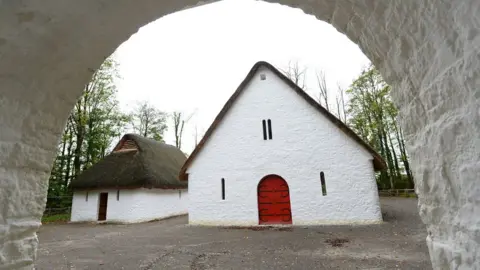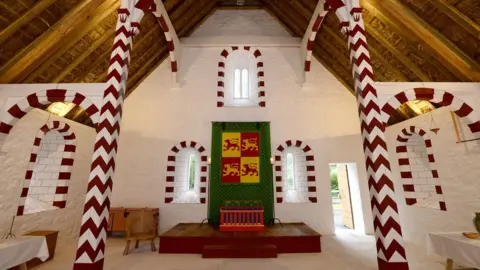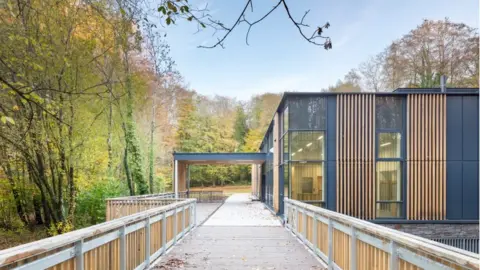£30m St Fagans museum Cardiff revamp complete
 National Museum Wales
National Museum WalesA £30m redevelopment of St Fagans National Museum of History has been completed.
There are three new galleries with social history and archaeology collections at the museum in Cardiff.
Its main entrance building has been refurbished with a new covered courtyard and restaurant.
St Fagans, which first opened 70 years ago in 1948, will also provide a dementia-friendly exhibit and support for Welsh learners.
School children will be able to wake up in a medieval prince's court as part of a 13th Century sleepover experience at Llys Llywelyn.
 National Museum Wales
National Museum WalesThere are new spaces for learning and research in the Weston Centre for Learning, which has welcomed more than 60,000 pupils and students since it opened in September 2017.
Director general of the museum, David Anderson, said: "The story of Wales is still evolving and so is the museum.
"It is the beginning of a new era at St Fagans and all of Wales' national museums."
The six-year project, funded by a Heritage Lottery grant, the Welsh Government and others, was described as "the most ambitious redevelopment project in [the museum's] history".
 National Museum Wales
National Museum WalesHelp was given by 120 community organisations, charities and groups - with more than 3,000 volunteers donating a total of 21,000 hours of their time.
Chairman of the Heritage Lottery Fund, Sir Peter Luff, said the museum had "made Welsh heritage, stories and culture more accessible and engaging for so many people across Wales, the UK and from around the world" and it would "continue to be a leading light" for national and international museums.

Analysis
By Huw Thomas, Arts and Media Correspondent, BBC Wales
The redevelopment of St Fagans is a significant investment in Wales' cultural infrastructure.
While the museum is a popular destination for foreign visitors, the new galleries allow local visitors and school children to learn more about the making of modern Wales.
Education was part of the ethos of the museum when it was founded in 1948 by Iorwerth Peate.
While Celtic roundhouses and a prince's court are among the ancient buildings to be given new life on site, the investment in new exhibits and in teaching hands-on skills reaffirms the museum's founding principle 70 years after it opened.
 National Museum Wales
National Museum Wales